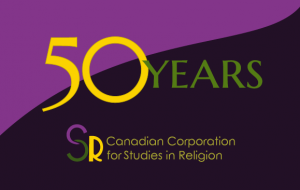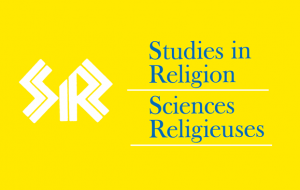SœurMarie Odile Kama. Faculté de théologie et de sciences des religions, Université de Montréal.
Les filles du Saint Cœur de Marie dans le sillage de leur co-fondatrice, Mère Rosalie Chapelain (1822–1886): Redécouverte et actualisationde leur charisme
Cette recherche vise à redécouvrir le don de l’Esprit confié à la Congrégation des Filles du Saint-Cœur de Marie, et le rôle qu’y a joué Mère Rosalie Chapelain, Cofondatrice peu connue. L’analyse de ses écrits permettra de retracer son itinéraire spirituelqui devrait refléter le charisme de l’institut. Se laissant interpeller par les mutations présentes, nous nous interrogeons sur la pertinence et la fécondité spirituelle de ce charisme, et sur les possibilités de son actualisation dans l’Afrique contemporaine. L’étude se laissera conduire par une démarche herméneutique théologique appuyée par une approche historique. Ses résultats contribueront à aiguiser un élan nouveau et créatif dans la vie et la mission de l’institut, et à faire connaître la cofondatrice aux générations actuelles et futures.
________________
Mme. Marine El Hajj. Faculté de théologie et sciences religieuses, Université Laval.
La pensée monastique de Youakim Baladios Blit. Moine libanais maronite (1716–1767).La thèse s’intitule «La pensée monastique et théologique de Youakim Baladios. Moine de l’Ordre libanais maronite (1716-1767)».
Baladios, syrien d’origine arménienne,a terminé ses études à Rome et a collectionné plusieurs manuscrits importants.C’est un auteur d’une encyclopédie spirituelle sur la vie d’un moine. Baladios a vécu à une époque charnière dans l’histoire de l’Orient chrétien. Dans cette recherche, il s’agit, d’un côté, de scruter ses écrits et sa spiritualité, et de l’autre, de détecter les articulations de la rencontre entre l’Orient et l’Occident dans la littérature monastique libanaise de cette époque. Ceci permet de comprendre l’histoire et contribue à faire le lien entre patrimoine et pensées modernes.
________________
James Forbes. Department of History, University of Calgary.
Saddle-Bag Parliaments: Protestant Dissent and the Making of Canadian Liberalism, 1828–1878.As a PhD candidate in History at the University of Calgary, James Forbes specializes in the history of Christianity in nineteenth-century Canada. His dissertation examines the role of Protestant Dissent in the liberal reform movement in Ontario from 1828-1878. Bridging themes of voluntarism and church establishments, anti-Catholicism and Ultramontanism, evangelicalism and millennialism, James explores the richness of Christian imaginations as they played out upon the political landscape of nineteenth-century Canada. Ultimately, James’ study seeks to understand the contribution of religious cultures and religion-based controversies to the making of Canadian liberalism.
________________
Marisa Karyl Franz. University of Toronto.
Studying the history of Russia collecting shamanic artifacts in the late 19th century.
Marisa Karyl Franz is a doctoral candidate in the Department for the Study of Religion. Her research examines the collection practices of late imperial Russian museums for the gathering of Siberian shamanic materials. Through archival work conducted in Saint Petersburg, Yakutsk, and Irkutsk, her dissertation explores the development of taxonomical systems of collection, imperial Russian modernity, and the constructive nature of desire.
________________
Brandi Estey Burtt. English Literature, Dalhousie University.
When the Messiah Comes: Ethics, Affective Citizenship, and Faith in 21st Century Literature.
Brandi’s research focuses on religion in twenty-first century literature. She examines how a number of contemporary writers use, re-interpret, and draw hope from religious beliefs and experiences of the sacred. Together, the work of these authors (such as Marilynne Robinson, J.M. Coetzee, and others) points to significant global literary interest in contemporary manifestations of religious experience.The texts she discusses indicate a diversity of ways of relating to religious ideas as well as an urgent sense that these ideas matter in the contemporary moment. Her research contributes to the growing area of literary postsecularism.

